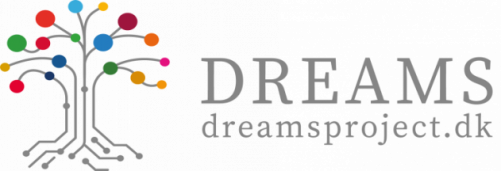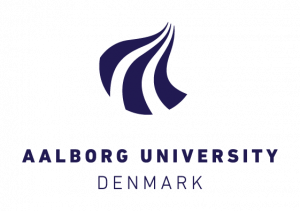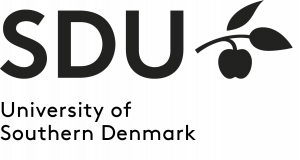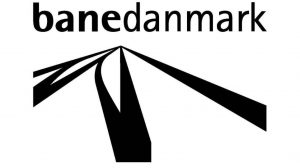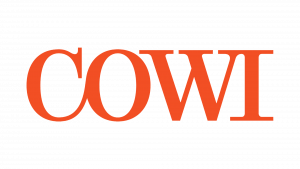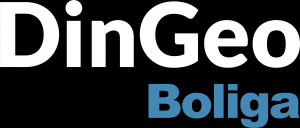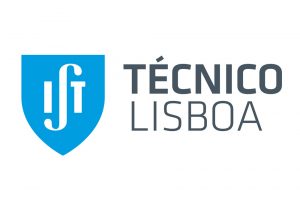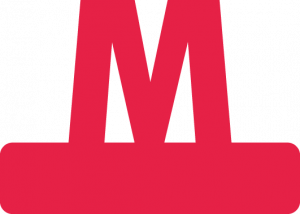
Project partners
Aalborg University
Danish Center for Environmental Assessment (DCEA)
DCEA – The Danish Centre for Environmental Assessment, within the Department of Development and Planning, Aalborg University, will host the project. DCEA is an interdisciplinary research group with extensive experience in research within environmental assessment, governance, planning, SDGs, and stakeholder engagement, and has currently 20 active researchers. The centre further has developed a strong national and international network regarding environmental assessment, both with researchers and practitioners. DCEA is an experienced project leader with competences from national and international projects. The cross-disciplinary team and experiences makes DCEA very qualified for leading a cross-disciplinary project. The key motivation is to bring in existing research for digitalization in EA and explore how digitalization transforms EA in future decisionmaking for sustainability, hereunder contribute to the global SDGs.
Danish Environmental Portal
DMP – The Danish Environment Portal will take the lead in establishing the project conceptual framework and in developing the baseline tool. The Danish Environment Portal is an organization established with the aim of creating value based on delivering IT systems which can collect, store and disseminate environmental information. DEP is jointly owned by the national, regional and municipal government authorities. The organization is comprised of 15 staff members, up to 55 IT consultants on framework contracts and 100 members in various organizational groups ranging from the board of DEP, to steering groups for projects and running systems. DEP has around 100.000 unique direct users and integrates to more than 100 other IT systems which have an estimated 1 million users. DEP is regarded as an effective and transparent IT organization with a proven track record of implementing systems in partnership with many different users. The key motivation is to strengthen DEP’s services to the EA community by leveraging on the extensive network and data infrastructure already in place with an estimated cost of more than 150 million DKK.
Aalborg University
Aalborg University’s Departmenf of Computer Science participates in this project with two of its research groups: Database and Web Technologies (AAUCS-DWT) and Human-Centered Computing (AAUCS-HCC). AAUCS-DWT specializes in developing algorithms, data structures, techniques, and systems for managing Big Data. The group has key competences in big data technologies including knowledge extraction, data/knowledge management and querying, business intelligence, machine learning, and data mining. The group has participated in numerous national and international projects. The key motivation is to bring in expertise about knowledge management and querying of EA documents. AAUCS-HCC is a research group with 30 years of experience in industry-university collaboration. The track record highlights studying users and designed software tools and systems, how they interact, and how tools and systems can be designed and developed. The motivation for participating in this project is to contribute with research knowledge of digitalization in general and of understanding diverse users and their different needs and tool requirements in particular.
Technical University of Denmark
DTU Compute – Department of Applied Mathematics and Computer Science at the Technical University of Denmark is one of the largest computer science departments in Denmark. The Cognitive Systems research section within the department has key competences in data science including machine learning, information retrieval and knowledge representation of complex data in knowledge graphs. They have participated in several national and international projects with cross-disciplinary teams and produced and distributed software for text mining that is widely used. DTU Compute’s motivation for joining is to bring expertise about modelling and advanced computational and automated analysis of EA documents.
University of Southern Denmark
June 2019 the University of Southern Denmark (SDU) decided that the Sustainable Development Goals (SDG’s) are to become the focal point for SDU’s work as a university. SDU-health as a partner in this project therefore not only shares the ambition of integrating health thoroughly into impact assessment procedures, techniques and tools whether it is health, environmental or any other type of assessment. SDU-health within different research centers and units has a vast experience in exploring the use of Danish health registries. The research unit for health promotion research has a long-standing experience on research to policy transfer both on local level in Denmark and internationally within a former FP7 research project coordinated by the unit. Participation in DREAMS will allow utilizing this experience and implementing the new overarching goal of SDU to support decision making with regard full achievement of SDG’s
Ministry of Environment and Food
The Ministry of Environment and Food of Denmark is responsible for administrative and research tasks in the areas of environmental protection, farming and food production. In the Ministry The Danish Nature Agency has the responsibility for implementing the Environmental Assessment Directive in Denmark and other agencies with information or expertise relevant for the DREAMS project. The Ministry sees great potential in the quality boost DREAMS can bring to environmental assessment in Denmark and with the link to the Sustainable Development Goals, the project also gets an international perspective. The Department expects to be able to contribute to both the technical and legal design of the solutions in DREAMS and to coordinate requests within the Ministry. We also look forward to contributing to the dissemination of the project. By participating the Department gives the project a direct access to top management in the Ministry and thereby potentially the ear of the Minister of the Environment.
The Danish Environmental Projection Agency
Danish EPA – Danish Environmental protection Agency – is as national authority responsible for carrying out EIA of a number of larger projects, typically projects for which a national authority is responsible as builder or projects which covers areas in more than two municipalities. Further Danish EPA regularly gives advice to municipal authorities on how the legislation on EIA should be understood. As a consequence of this Danish EPA is very experienced in both interpretation of legal framework on EIA as well how the legislation can fulfill in practice. Our years of experience has made it clear to us that there is an obvious need to provide for much better sharing and reuse of environmental data. Based this recognition we are very eager to support and contribute to a project which will lead to this. Further we are interested in participating with our practical experience in discussions of possible ways to optimize and improve the use of data in the EIAs
BaneDanmark
Banedanmark is responsible for the Danish railway network and ensures that tracks, signals and safety systems are properly maintained, renovate the network and builds new railway lines. As a result, Banedanmark continuously conducts environmental assessments for a wide range of maintenance and development projects all over Denmark. Banedanmark sees a huge potential in developing decision support tools that transforms the way environmental impacts of our projects are assessed and communicated as such tools will allow Banedanmark faster and more transparent decision-making especially during the early projectplanning phases where the project footprint is scoped and defined. Thus, by developing these decision tools, the DREAMS-project can assist Banedanmark in its journey to optimize and streamline the very time and resource heavy process of impact assessment.
COWI
COWI is a leading consulting group that creates value for customers, people and society through our unique 360° approach. Based on our world-class competencies within engineering, economics and environmental science, we create coherent solutions for our customers – and thereby sustainable and coherent societies in the world. Our motivation for being a key partner in the DREAMS project is to play a central role in developing future solutions related to the digitalization of Environmental Assessment and integration of SDGs in all decision-making procedures that COWI contributes to for the purpose of being in the forefront of business within this area. We expect that the DREAMS project will be a vital element in developing COWIs position as a market leader in Europe and other continents of the world where COWI is present.
Rambøll
Rambøll will participate in the project with both its Global Impact Assessment Spearhead and Its centre for Data Science. Ramboll is a Danish multidisciplinary consultancy with a global presence consisting of more than 15.000 employees in 30 countries and more than 300 offices worldwide. Ramboll Environment and Health division is ranked 8th globally in terms of size within environmental consultancies, and the Impact Assessment spearhead consists of more than 300 specialists and practitioners, primarily focused on EA. Ramboll’s motivation is to be able to utilize and further develop the strong market position within EA to further digitalization, thereby ensuring that the ability to guide and assist customers on the Nordic and global markets are at the forefront of digital development, and able to meet the clients future needs.
DinGeo
Digital environmental assessments are a vital part of understanding and knowing the nature around our homes and the plans for the future. Right now, homeowners have only limited access to digital environmental assessments and are lacking the skills of understanding them. It gives a democratic lack of knowledge between the public sectors and professionals on one side and the citizens on the other side. The last will not have a proper chance to raise their voice until it is too late and the project is done. DinGeo sees a huge potential for approaching these problems in the DREAMS project and is therefore partner in the project. DinGeo’s main purpose and speciality is to collect and extract data from registers and explain and publish the information to a broad audience of citizens on a base of the current or future home address and thereby increase the citizens’ knowledge regarding a certain area. DinGeo combines a unique combination of knowledge regarding public and private databases in Denmark and specialist skills within data handling, analysis, programming and commercialisation and communication towards private households.
Instituto Superior Tecnico
Instituto Superior Técnico (IST) is the largest school of engineering in Portugal, with long tradition in teaching, and excellence in research, innovation and training in the areas of Science, Engineering and Technology. Sustainable development links with Technology is one of the most important research areas at IST. Research interests on sustainable development goals (SDGs) at IST, in particular connected to strategic environmental and sustainability assessment, is supported on on-going research that can be further developed with the DREAMS project.
The Danish Road Directorate
The Danish Road Directorate (DRD) will be able to take part in the DREAMS-project and become a partner. DRD has the responsibility of the main roads and all the highways in Denmark. We also plan and make environmental assessment of new highways etc. We are one of the bigger practical users of environmental data for the assessment of new projects. DRD has a wide range of ongoing projects in planning. Some of these projects might be used to test ideas or new processes coming from the DREAMS-project. The motivation for DRD is to have as good and reliable environmental data as possible. A motivation is also to make the (sometimes very resourceful) processes in the environmental assessments easier and better. This project can be a part in fulfilling some of these goals.
EnergiNet
As developer of major energy infrastructures Energinet has a considerable annual budget for collecting environmental data and conducting environmental assessment as part of the project development process. Energinet has focus on optimizing environmental assessment process both in terms of the professional part of making the assessment and in terms of the dialogue with other actors with the environmental assessments as core element. Specifically, Energinet has key initiatives on being better at reusing data produced in earlier assessments and on increasing focus on significant environmental aspects compared to non-significant. Therefore, Enreginet.dk sees a huge potential in the project and participates as partner.
The Copenhagen Metro
The Copenhagen Metro is a major developer of public infrastructure with in-depth experience from conducting environmental assessments. We see a significant potential in developing a common platform of environmental data and knowledge, where developers can benefit from experience from one another. A common platform has the potential to improve data quality and access to data, streamline environmental assessments and eventually lead to better decision-making. Moreover, we want to support a greater linkage between EA and SDG reporting and underpin that I). SDGs are included in the early stages of investigating short and long-term consequences of projects and II) streamlining the process of SDG reporting.
